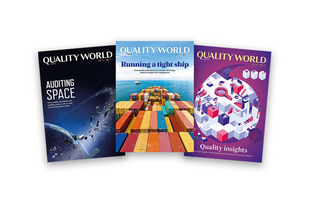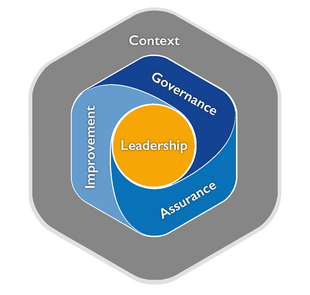
The power read: 5 minutes that could boost your career in quality management
Progress indicator

John Fenner, CQP FCQI, group compliance director at John F Hunt, gives his advice on what it takes for quality professionals to rise to the top.
How can quality professionals make sure they stand out?
Effective communication and interpersonal skills are essential. The success of all the other skills a quality professional need to possess (such as leadership, technical ability, planning and organisational skills, problem solving and IT skills) depends on effective communication to all interested parties and the ability to disseminate this information.
You have to be able to communicate to all levels and functions in an organisation to gain buy-in and ownership.
What is your advice for understanding and catering to stakeholder requirements?
Stakeholder engagement is a key business principle and is essential for business continuity. Start by identifying your stakeholders and engaging in meaningful dialogue with them.
This will help you understand their requirements and how these relate and interrelate to other stakeholders, the strategic direction of the business and your resource limitations.
How do you maintain your professional development?
I enter my CPD (continuing professional development) activities on a quarterly basis, covering the activity undertaken, the lessons learned and how I apply this knowledge in my everyday working life. It’s is a great way to reflect on, review and improve my own abilities.
How do you explain quality to a non-quality professional?
I relate quality to something they are familiar or can identify with, for example something they do at home. Most people follow a cleaning routine, cleaning certain parts of the house at certain parts of the day, on set days of the week, this is sequential planning.
This means they are following and sustaining a disciplined approach to cleaning using ‘batch size’ reduction to break the task down into more manageable parts. I would explain that similar processes are used in both the service and manufacturing industries where quality practitioners are looking to organise, manage, measure, observe and continually improve the way we do things.
5 power tips for working in group compliance
- Be resilient – as a quality professional you have to be determined and know that if at first you don’t succeed, try and try again.
- Find ways to add value to the business – remember if you aren’t adding value you could find yourself surplus to requirements.
- Network – build relationships, attend support groups and use mentors.
- Be passionate about what you do – if you are not, working life in a quality environment will be a very long hard slog.
- Believe and be confident – this gives your peers and stakeholders reassurance, however, tread this line carefully. You do not want to appear arrogant.
John Fenner, CQP FCQI, is group compliance director at John F Hunt
Upskill with CQI and IRCA Certified Training
Make sure you have the knowledge and skills you need to reach your career goals with CQI and IRCA training - find the course thats right for you.
Member only

This article is free to access for a limited time only. Only CQI and IRCA members receive access to all content.
The Profession Map

Your route to success - equipping modern quality leaders to meet evolving business demands.


